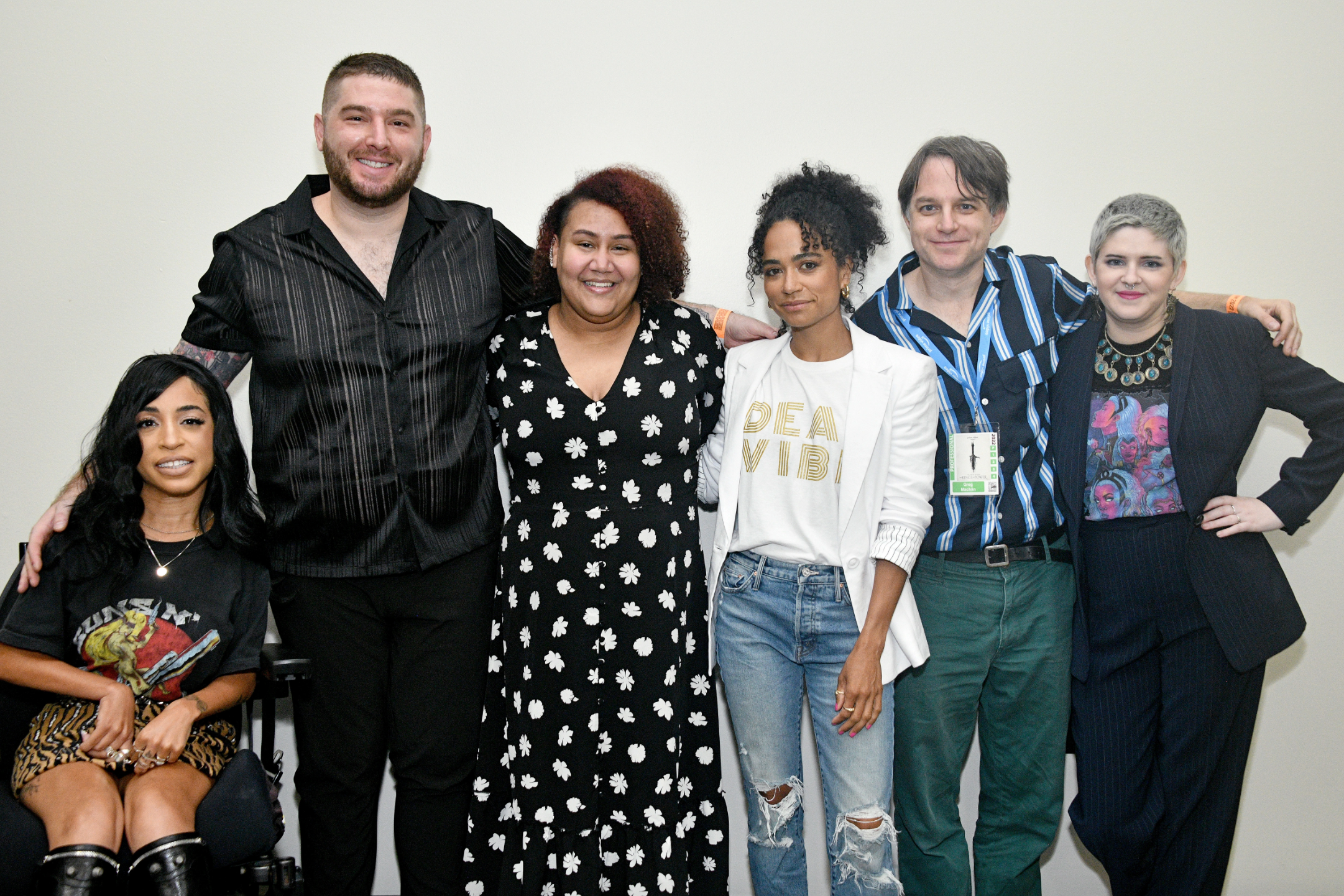NBC San Diego: Lauren Ridloff on Importance of Diversity in Film, Television
Image Description: A photo of five people smiling with their arms around each other. The person on the far left uses a wheelchair. (L-R) Jillian Mercado, Josh Feldman, Abbey White, Lauren Ridloff, Greg Machlin, and Aoife Baker
By Kristin Valdivia
Since her Broadway debut, Lauren Ridloff has been an inspiration to people with disabilities who are finally seeing themselves represented in Hollywood.
After taking on the big screen in films like Sound of Metal and The Eternals, Ridloff was able to break barriers and push boundaries as the first deaf female superhero.
She has used her newfound platform to educate and create a conversation about the importance of diversity in film and television.
She works closely with the Inevitable Foundation, which is a nonprofit organization whose mission is to, “fund and mentor professional disabled screenwriters and builds an unrivaled content development and staffing pipeline for film and television."
Ridloff who was recently in San Diego for Comic-Con joined the foundation in a panel about how Hollywood can be more inclusive not just on screen, but also behind the scenes as well.
Telemundo 20 got the chance to talk to her, not just about the importance of representation in film, and TV for those who are disabled, but also for those of mixed ethnic backgrounds.
Q: How do you feel the opportunities have changed for people with disabilities?
A: There is a growing awareness of disability as diversity as Hollywood works on telling more diverse stories. I feel that opportunities still remain scant but the intent is there.
Q: I know you have worked closely with the Inevitable Foundation and they have made a huge impact in helping there be inclusion within TV and film, on and off-screen. Do you think Hollywood will ever get to a point where it will be normal for there to be wheelchair ramps, interpreters, and other forms of assistance and understanding?
A: I’m all for positive change. Put it out there and it happens. So I am manifesting that this will become the new normal one day. Critical mass is important, so the more diverse bodies we have working together, the harder we can push for change.
Q: With that being said how much more work is there to be done? And what would you like to see normalized on sets?
A: What I need to see is more representation on set, and offscreen. Right now what we are seeing are the actors, but what about the creators? Crew? It takes a particular eye to capture signed dialogue, so instead of bringing in an ASL consultant to work with the director AND the director of photography, why not bring in a Deaf DOP? Or a Deaf director? That’s what I want to see normalized. I have seen remarkable and extraordinary examples of this happening, but it is not the norm.
Q: Has your culture and ethnic background ever influenced your artistic choices on what roles to choose?
A: Protecting my character’s integrity is important to me, so instead of nixing the roles I am offered, I try to work with the creators on cultivating a role that rings more true. Right now disability, when portrayed, is often through the white gaze. I want to see more diversity within disabilities, and that is what I bring to the table.
Q: What advice would you tell your younger self and younger artist who have disabilities and are trying to pursue a career in the film and TV industry?
A: You have every right to take up space in Hollywood. And know that there is room for others like you—there is great honor in being the first, but there is no fun in being the only one. Take up space and hold space for others to join you. Don’t ever feel apologetic or guilty for being an “issue." Ignorance is the true burden, not you.

